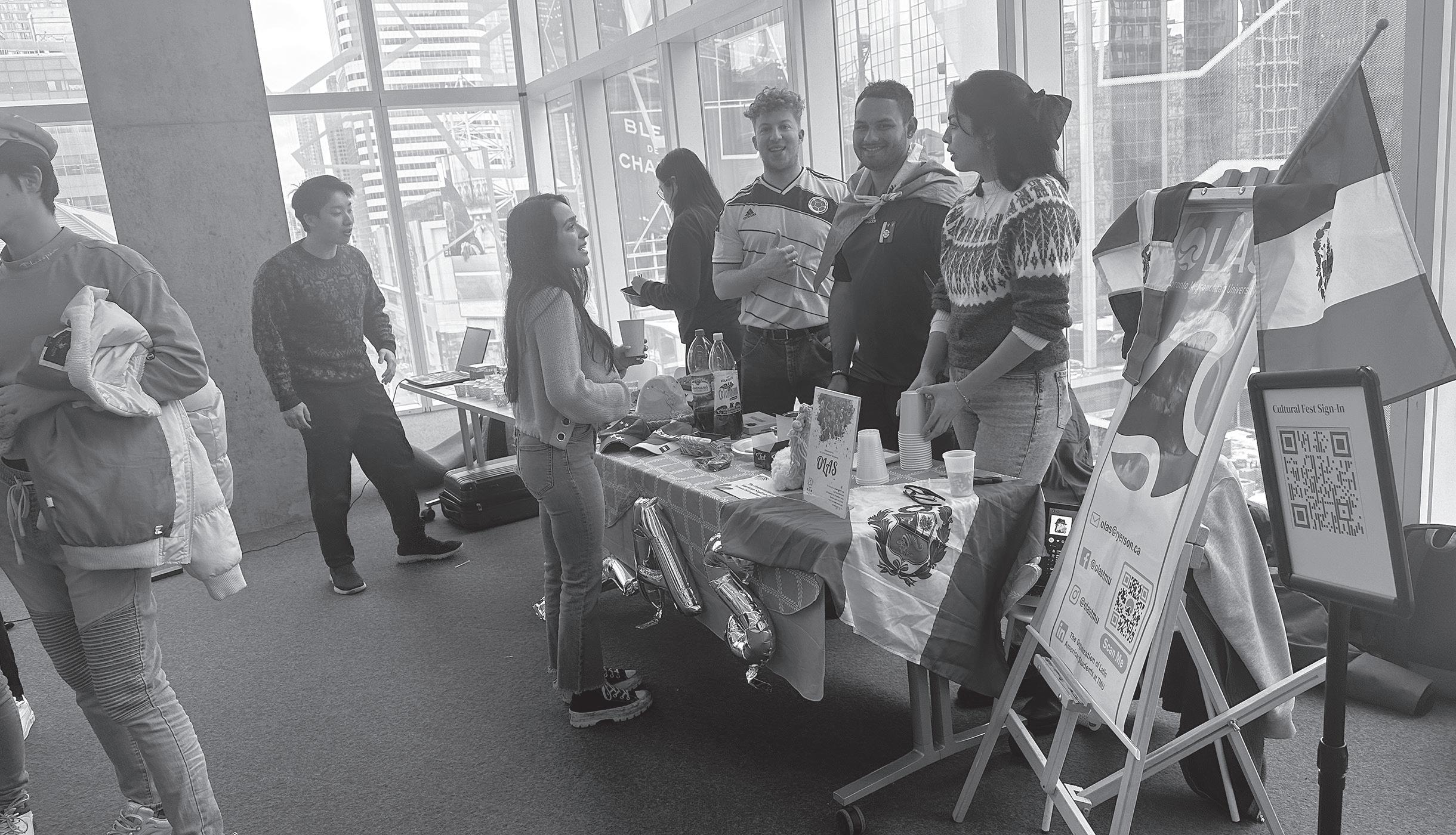
2 minute read
TMU: Be our voice
from Vol 56 Issue 19
By Maya Zaid
When third-year electrical and computer engineering PhD candidate Shirin Hosseini was unable to contact her family in Iran due to internet blockages during recent protests, she knew she had to create a space at Toronto Metropolitan University (TMU) where she could reach other Iranians.
Advertisement
On Sept. 16, 2022, country-wide protests broke-out when 22-year-old woman, Zhina (Mahsa) Amini died after being arrested by the Islamic republic’s so-called morality police in Iran—a force tasked with detaining people who violate the government’s dress code.
Most recently on March 5, Iran International, a U.S. based Iranian news agency, reported a surge in chemical attacks on Iranian schoolgirls which started in the fall.
According to the news outlet, about 80 schools were targeted by chemical attacks with dozens of girls hospitalized in early March. Since then, the international community has been seeking answers to the mysterious attacks.
As a revolution demanding the dismantlement of the current Iranian government sparked back home, Iranian students at TMU were left looking for ways to raise awareness within their campus community.
Through the Career, Co-op and Student Success Centre, Hosseini was able to connect with Iranian community members Rojan Reybod, a Ted Rogers School of Management project coordinator and Sina Rahimi, a second-year building science PhD candidate. Together, the three created a five-day campus event called TMU: Be Our Voice. with continuous trauma, especially since not being able to get in touch with their families.
“TMU does have such a large Iranian community, from faculty, staff and students and we wanted to bring everyone together as well as inform other people outside of the Iranian community on what’s happening,” said Reybod.
Within these three days, Reybod, Rahimi and Hosseini planned different events from speeches and mental health workshops to live musical performances at The Innovation Studio on campus from March 6 -10, to raise awareness about what’s happening in their homeland.
“We decided to finally get things together and organize an event, which [brought] executive members from the university [together] and ask them what are their plans to support the Iranian communities,” she said.
When asked at the event about how the school aims to support Iranian students during this time, the university administrators said they try to create mental health and financial services for students in need as best they can.
At the event, paintings from Iranian artists such as Azadeh Momeni’s piece called “HOPE” were exhibited in the drop-in art gallery at the studio from Monday to Friday.
The art gallery also included a timeline featuring all the events in Iran from September 2022 to now, written both in Persian and translated to English for people who are outside the Iranian community.
MAYA ZAID/THE EYEOPENER
TMU president Mohamed Lachemi, vice president equity and community inclusion, Tanya Demello and Vice-Provost Students, Jen McMillan were all in attendance for the opening event on March 6.
In his speech, Lachemi addressed the negative image Iran has in media and wished the international community was more aware of the country’s rich history and contributions to civilization.
Rahimi said the first event was dedicated to showing support for Iranian students by bringing in university leaders to answer students’ questions and concerns.
A mental health day was planned on March 7 to help Iranian students manage their stress. It included Iranian psychotherapists Anahita Jakibchuk and Brian Williams, the TMU Test Centre and Accessibility Services manager.
Hosseini said since families in Iran are not currently in a good financial situation, Iranian students–especially international students like herself–cannot expect financial support from them.
“We wanted them to assign some mental health resources for Iranian students,” Hosseini said.
Rahimi said during these six months, Iranians have been dealing










